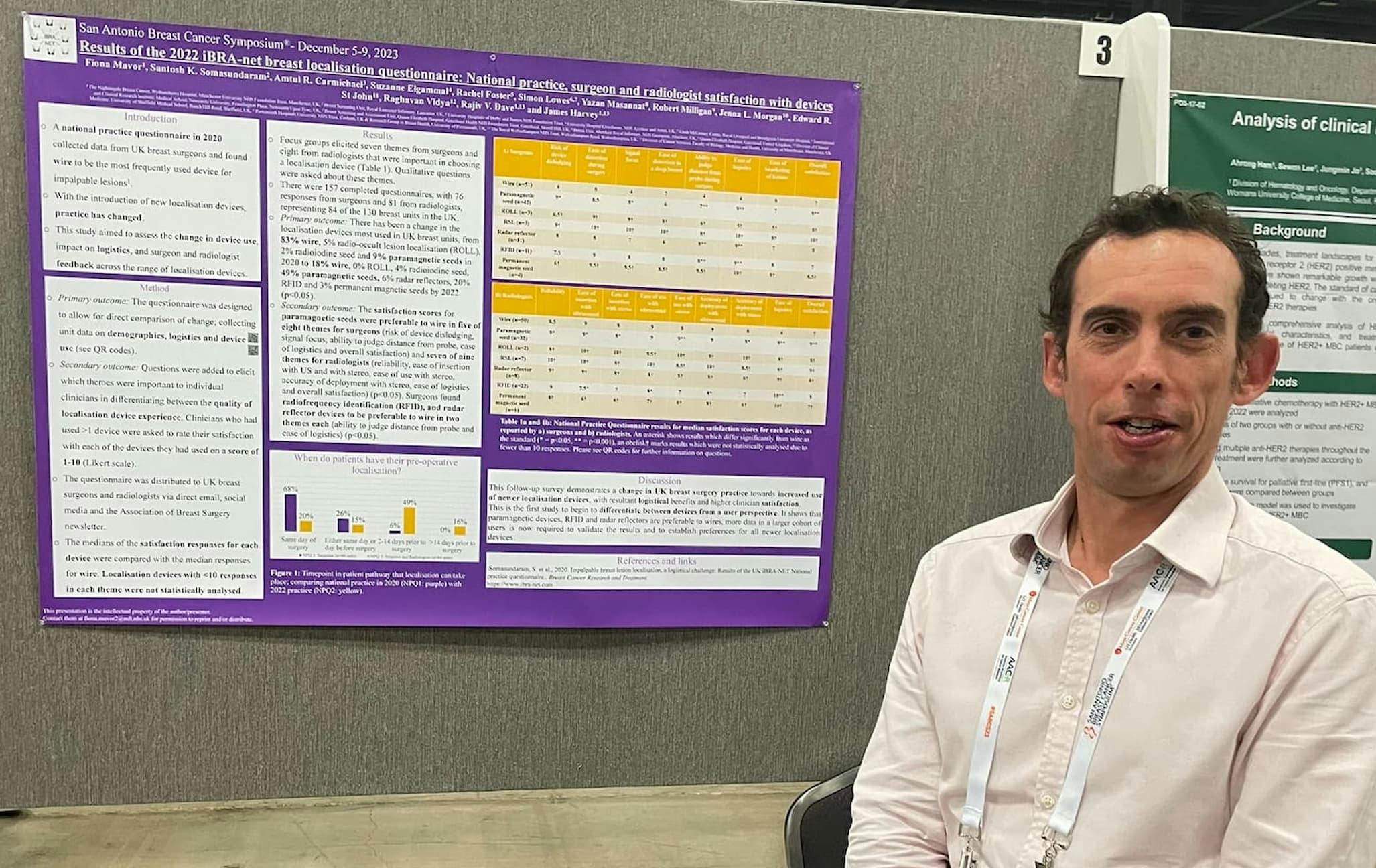SABCS 2023 study finds Magseed provides clinicians with the best non-radioactive localization experience

A new poster from the 2023 San Antonio Breast Cancer Symposium has revealed Magseed to be the preferred non-radioactive localization device for user experience by both Radiologists and Surgeons.
The study was presented by Mr. James Harvey, Chair of the iBRA-NET Localisation Study Group, and was designed to be the first of its kind to assess user satisfaction levels, across all localization devices available to clinicians treating breast cancer.
157 breast surgeons and radiologists were enrolled into the study, and were surveyed to understand the localization device they predominantly use, once in 2020 and again in 2022. The findings were striking, with a swift adoption of non-wire seed markers demonstrated over a very short time period.
The most significant findings here showed that Magseed had seen increased adoption from 9% to 49%, potentially driven by time savings, patient experience and cost efficiencies - highlighted during the years of the COVID-19 pandemic. In stark contrast, usage of wires had dropped from 83% to just 18% over the time period.
“This demonstrates that the modern solutions to localization are providing such an improvement for patients and clinicians, that they have been rapidly adopted by breast clinicians.” Mr. James Harvey, Chair of the iBRA-NET Localisation Group
Secondary Study Endpoints: Migration, Detection, Accuracy, Logistics
In addition to understanding the changes in devices used, the iBRA-NET group also wanted to understand the impact of each device on the user experience, across both the radiology suite and the operating theatre.
Within the survey they included questions on a variety of topics including the reliability of each marker, ease of placement, detection and removal, accuracy of signal and logistics. For each topic, respondents were asked to rate their experience on a 1-10 scale (10 being the very highest level of satisfaction).
Only three devices - Wires, Magseed and the RFID marker - returned enough users (more than 10) for the data to be statistically analysed. As the results from the tables below show, Magseed was significantly better than wires for overall satisfaction (8, 9), primarily driven by its low rate of migration, reliability, ease of use and opportunities for improved hospital logistics.


“This is the first study to demonstrate that radiologists and surgeons find the Magseed more effective in patient care and a significant improvement on prior technologies.” Mr. James Harvey, Chair of the iBRA-NET Localisation Group
The results from this ground-breaking study demonstrate that not only have newer localization technologies begun to change the way breast cancer is treated to improve the patient experience, but also how Magseed is providing an easier, more reliable alternative for both surgeons and radiologists to improve their workflows.
This iBRA-NET satisfaction study includes findings from 84 breast units (65% of all UK sites), and was officially published at the San Antonio Breast Cancer Symposium in December 2023.
→ Read the four main reasons for making the switch from guidewires